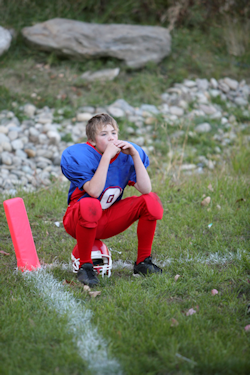Suspecting a Concussion
Removing someone from a game or practice can be tough, but if you suspect a concussion, it is necessary to keep them safe. Here are some steps to follow:
Remove the athlete from play. If an athlete has experienced a bump or blow to the head or body, you must look for signs and symptoms of a concussion. When in doubt, sit them out.

Ensure the athlete sees a health care professional who is experienced in evaluating for a concussion. Do not attempt to judge the severity of the injury on your own.
Inform the parents or guardians about the incident. Give them the Centers for Disease Control fact sheet on concussions. This fact sheet can help parents monitor for signs or symptoms that appear to worsen once the athlete is at home or returns to school.
Keep the athlete out of play on the day of the injury. Wait until an experienced health care professional says it is okay for the athlete to return.
Returning to Play
Concussions affect each person differently. Most athletes with a concussion recover quickly; however, some will have symptoms that last for days and possibly weeks. A more serious concussion can last for months or even longer.
The return to sports should be gradual. Athletes should return only under the supervision of a knowledgeable health care professional.
A licensed health care professional should monitor both the physical and cognitive activities- such as concentration and learning- until they give you and your athlete the green light.
Knowledge Check Choose the best answer for the question.
1-6. Who can determine if it is okay for an athlete to return to play?
You forgot to answer the question!
